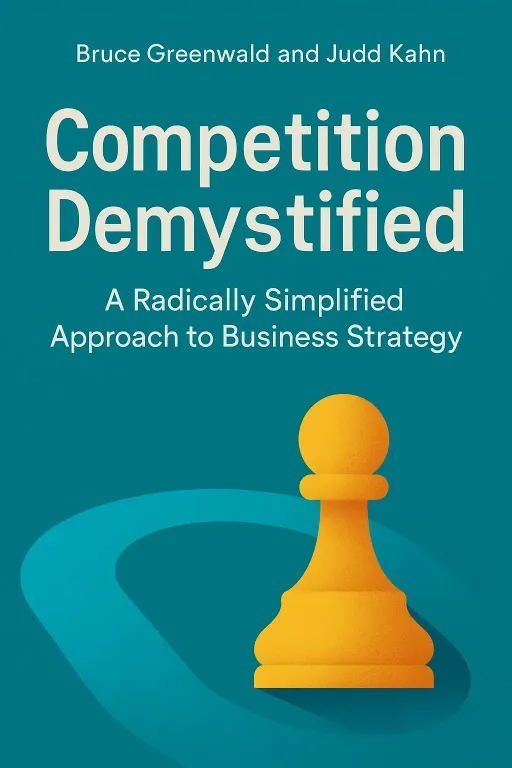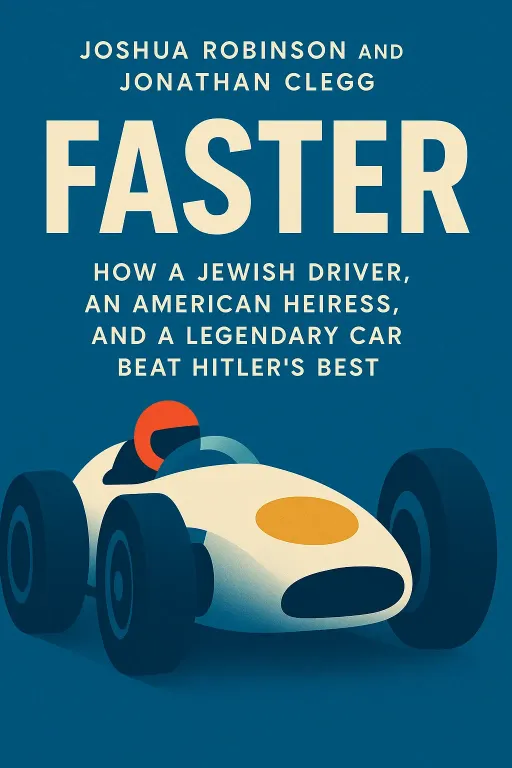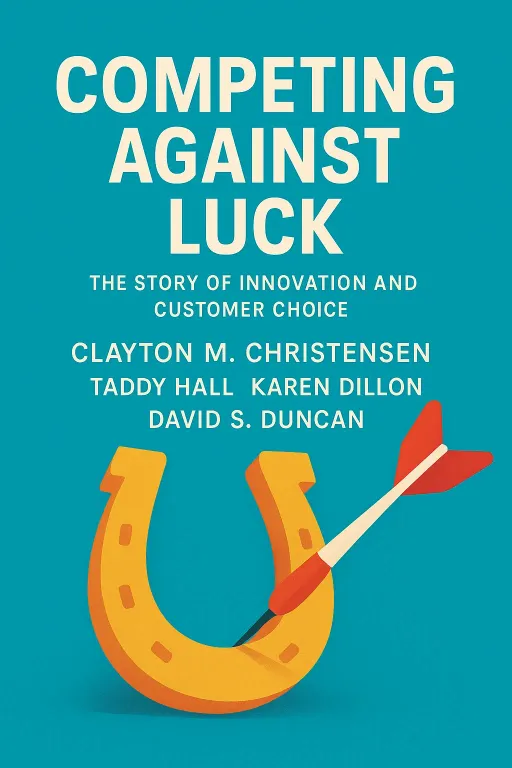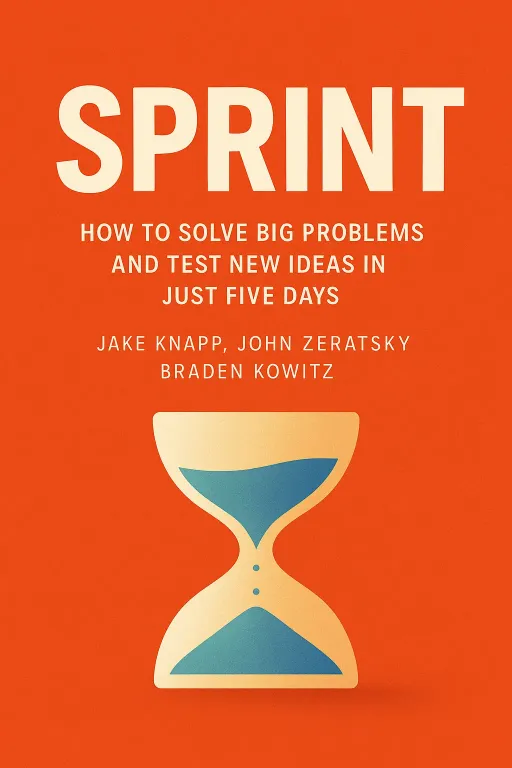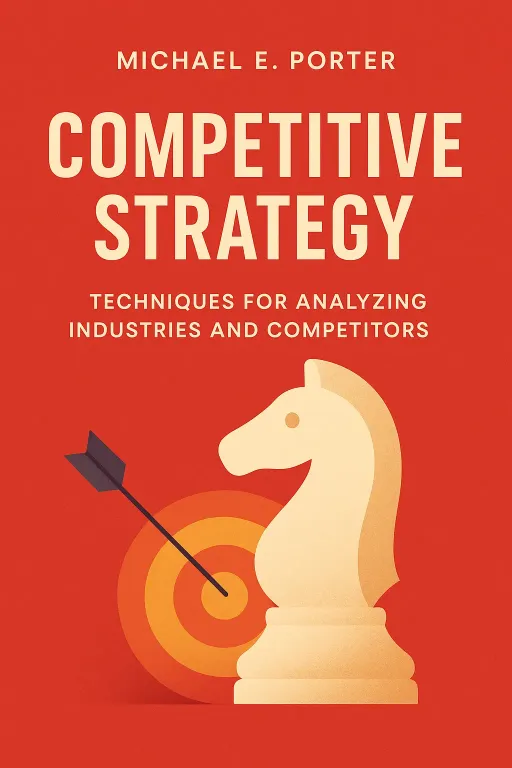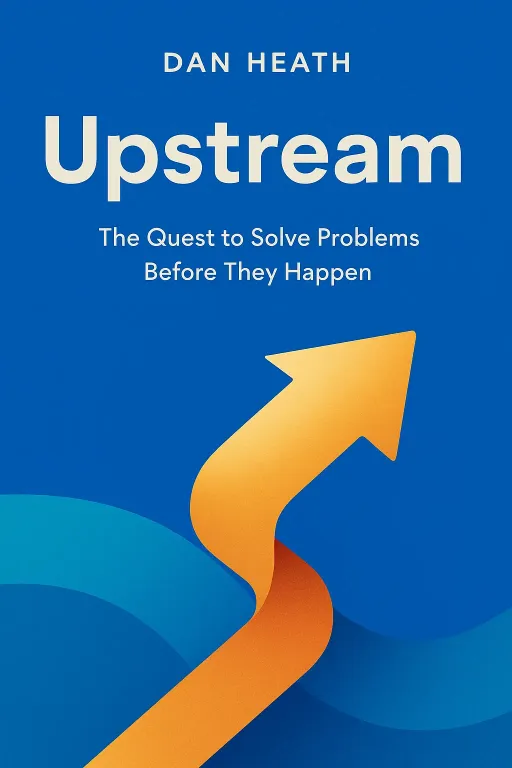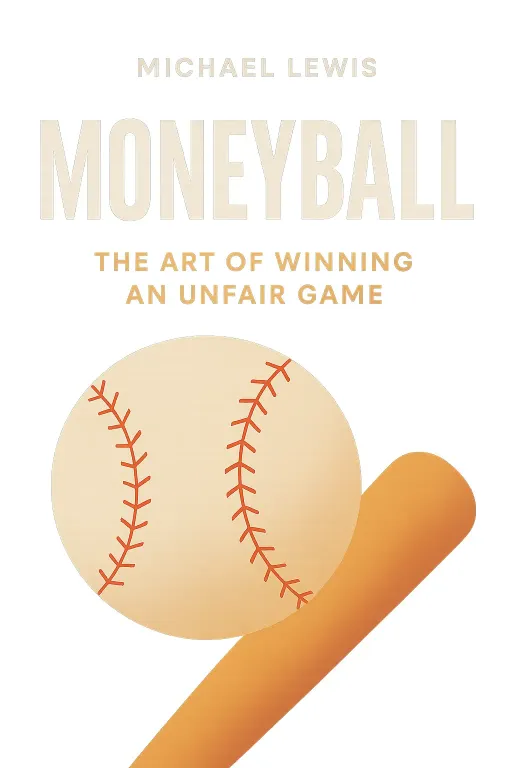
David's Spreadsheet Slingshot
10 minThe Art of Winning an Unfair Game
Golden Hook & Introduction
SECTION
Joe: Alright Lewis, I'm going to say a word, and you tell me the first thing that comes to mind. The word is... baseball. Lewis: The only sport where the defense holds the ball. And a great way to take a three-hour nap in public. Why are we doing this to our listeners? Joe: Because we're talking about Moneyball: The Art of Winning an Unfair Game by Michael Lewis. And what's fascinating is that Lewis, who made his name writing about Wall Street with Liar's Poker, saw baseball not as a sport, but as a deeply inefficient market, just waiting to be disrupted. Lewis: Ah, so it's a business book disguised as a sports book. Now I'm interested. It’s about finding a glitch in the matrix. Joe: Exactly. It’s the story of how the Oakland Athletics, a team with a tiny budget, started competing with behemoths like the New York Yankees. They couldn't outspend them, so they had to outthink them. And in doing so, they started a revolution that changed sports forever. Lewis: Okay, so it's a classic David versus Goliath story, but David's slingshot is a spreadsheet. Joe: You've got it. And the story really starts with a fundamental question: how do you actually know if a baseball player is any good? For a hundred years, the answer was basically, "You just know."
The Heresy of Numbers: Overthrowing the Old Gods of Scouting
SECTION
Lewis: What do you mean, "you just know"? That sounds incredibly unscientific for a billion-dollar industry. Joe: It was! The old guard of baseball—the scouts—were these grizzled veterans who had spent their entire lives on the road, watching thousands of games. They believed they could size up a player's potential just by looking at him. They had what they called the "five tools": running, throwing, fielding, hitting, and hitting with power. Lewis: That sounds reasonable enough. Like a checklist for what makes a good player. Joe: It does, but the way they measured it was completely subjective. They were obsessed with how a player looked. In the book, the scouts are constantly talking about a player's "good face" or his "great body." The protagonist, A's General Manager Billy Beane, gets so fed up he eventually yells, "We're not selling jeans here!" Lewis: Hold on, a "good face"? What does that even mean? Is there a jawline-to-home-run ratio I'm not aware of? Joe: It's as absurd as it sounds. They believed a player’s confidence and character were written on his face. They were looking for a movie star, an archetype. And if a player didn't fit that mold, he was dismissed, no matter how good his actual performance was. They were artists, not scientists, and their biases were baked into the system. Lewis: Okay, but surely there's some wisdom in experience? These guys have been watching baseball for 50 years. Can a spreadsheet really replace that gut instinct? Joe: That’s the central question of the book. And the ultimate proof that the system was broken is the story of Billy Beane himself. As a young player, Beane was the perfect prospect. He was a five-tool athlete, handsome, confident—he had the "good face." Scouts thought he was a can't-miss superstar. Lewis: And let me guess, he missed? Joe: Spectacularly. He completely flamed out in the minor leagues. He had all the physical talent in the world, but he couldn't handle the mental pressure of the game. Every strikeout crushed him. He was, as the book puts it, cursed by his own talent. The very system that anointed him a future star had failed to measure the one thing that actually mattered: his ability to cope with failure. Lewis: Wow. So the very guy who was the poster child for the old system's failures becomes the one to burn it all down? That's poetic. Joe: It's the core of his motivation. His own painful experience taught him that the experts, the scouts, the old gods of baseball, didn't really know what they were looking for. So when he became a General Manager, he set out to find a new way. He teamed up with a young Harvard economics graduate named Paul DePodesta. Lewis: The anti-scout. Joe: Exactly. DePodesta had never played professional baseball. He just saw it as a system of numbers. And together, they started a war in their own draft room. The scouts would rave about a high school kid's "beautiful swing," and Beane and DePodesta would point to a computer screen and say, "Yeah, but this overweight college catcher who everyone thinks is a slob gets on base 45% of the time." Lewis: I can only imagine the arguments. It’s like bringing a physicist into a room of priests to debate the creation of the universe. Joe: It was a full-blown religious war. The book describes Beane getting so angry at his scouts for picking a player based on looks that he picks up a chair and hurls it through a wall. He was trying to force a new religion on a room full of devout believers in the old one. Lewis: And that new religion was based on one simple idea, right? That the old stats were lying. Joe: They weren't just lying; they were measuring the wrong things. The scouts and the public were obsessed with stats like batting average and home runs. But Beane and DePodesta, using the principles of a brilliant outsider statistician named Bill James, realized that the most important thing a batter can do is simply not make an out.
The Art of Finding Value: Buying Wins, Not Players
SECTION
Lewis: Okay, "not make an out." That seems... obvious. How is that a revolutionary idea? Joe: It's revolutionary because it changes what you value. A walk, where the pitcher throws four bad pitches, doesn't show up in your batting average. It's not glamorous. But it's just as good as a single. You're on base. You didn't make an out. The A's realized that the market for baseball players wildly overpaid for flashy skills like hitting home runs and wildly underpaid for boring but effective skills, like drawing walks. Lewis: So they started hunting for the boring players. Joe: They started hunting for undervalued assets. Beane’s mantra, which came from Bill James, was brilliant. He said, "Your goal shouldn't be to buy players. Your goal should be to buy wins. And in order to buy wins, you need to buy runs." Lewis: Okay, "buy runs." What does that actually mean in practice? How do you find a "run" on the cheap? Joe: You find players who contribute to run-scoring in ways other teams ignore. And this led them to build what the book calls an "island of misfit toys." The perfect example is Scott Hatteberg. Lewis: I remember his story. It’s wild. Joe: Hatteberg was a catcher for the Boston Red Sox. A good hitter, but he developed a nerve injury in his elbow and could no longer throw the ball effectively. For a catcher, that's a career death sentence. He was basically worthless to every team in baseball. Lewis: A catcher who can't throw is like a surgeon with shaky hands. Joe: Exactly. But the A's looked at his stats and saw one beautiful number: a very high on-base percentage. He knew how to draw walks. So Billy Beane calls him up and says, "We'll sign you. But you're not going to catch. We're going to teach you to play first base." A position Hatteberg had never played in his life. Lewis: That's insane. It’s like hiring a brilliant accountant who's afraid of spreadsheets and saying, "Don't worry, we'll teach you to be a public speaker instead." How did that even work? Joe: With a lot of hard work and a phenomenal coach named Ron Washington, who spent hours every day hitting ground balls at him. At first, Hatteberg was terrified and clumsy. But Washington built his confidence, nicknaming him the "Pickin' Machine" every time he made a good play. Slowly, he became a respectable first baseman. And at the plate, he was exactly the patient, high-OBP hitter the A's needed. They got a key offensive piece for virtually nothing. Lewis: That's incredible. So they're basically dumpster diving for All-Stars. What other 'misfits' did they find? Joe: Oh, the list is long and hilarious. My favorite is Jeremy Brown. He was a college catcher with phenomenal offensive stats. He almost never struck out. But scouts hated him because of his body. They said he was fat, un-athletic. One scout is quoted in the book saying, "He wears a large pair of underwear." Lewis: That's the scouting report? His underwear size? Joe: That's the level of "analysis" they were doing. The scouts were laughing at him. But the A's, looking only at the numbers, drafted him in the first round. The rest of the league thought they were insane. They also picked up a pitcher named Chad Bradford. Nobody wanted him because he threw the ball in this bizarre, underhand, "submarine" style. It looked ridiculous. But his stats were unhittable. His pitches were so deceptive because of his weird delivery. Lewis: So the entire strategy is to find players with flaws that look bad but don't actually affect their ability to generate runs. It's like finding a dented can at the grocery store – the food inside is still good, but you get it for half price. Joe: That is the perfect analogy. They actively sought out players with warts, because the warts made them cheap. They built a winning team out of other teams' rejects. They couldn't afford the polished, perfect-looking players, so they bought the dented cans, the weirdly shaped vegetables, the statistical gems that everyone else was too proud or too blind to see.
Synthesis & Takeaways
SECTION
Lewis: And it worked. The A's went on that historic 20-game winning streak in 2002, which is just statistically absurd. But what do you think the bigger legacy of Moneyball is? The book was, and still is, pretty controversial. I’ve heard people say it "ruined" baseball by taking the soul out of it and turning it into a math equation. Joe: It absolutely changed the game, no question. Now, every single major league team has a deep analytics department. The "Moneyball" approach is the new orthodoxy. But the book's real impact is so much bigger than baseball. The term "Moneyball" has become a verb. It means using data to find hidden value and disrupt an industry. It's been applied in business, government, and even healthcare. It’s a blueprint for the underdog. Lewis: It feels like a story about the nature of expertise itself. It suggests that sometimes, the people who are considered the top experts in a field are the ones most blind to its fundamental truths because they're trapped by tradition. Joe: That's the core of it. And that's what makes the book so powerful. It's not really about baseball. It's about having the intellectual courage to question everything you've been taught. First, to redefine what "good" even means, throwing out a century of flawed wisdom. And second, having the discipline to hunt for that new definition of "good" in the places everyone else is conditioned to ignore. Lewis: It really makes you wonder, what's the "batting average" in our own lives or careers that we're all chasing—the flashy, obvious metric of success—when there's a more important "on-base percentage" we're completely overlooking? Joe: What's the thing that truly leads to a "win," even if it's not glamorous? That's the question Michael Lewis leaves us with. It’s about finding your own unfair advantage by seeing the world differently. Lewis: A powerful idea, whether you're in a dugout or an office. A great place to leave it. Joe: This is Aibrary, signing off.
